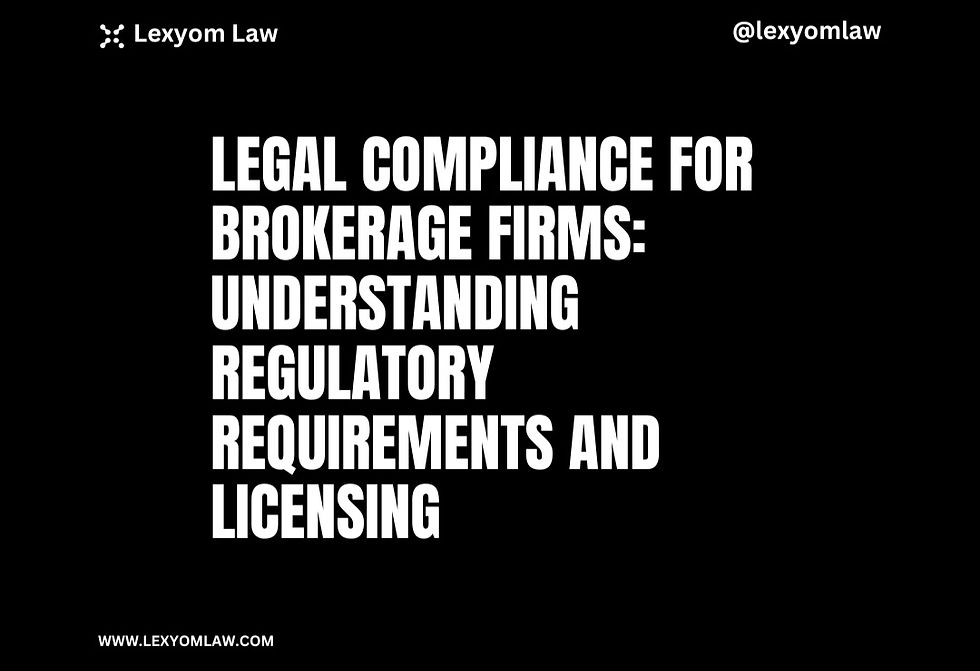Introduction

What is a Brokerage Firm?
A brokerage firm, also known as a brokerage house or brokerage, is a financial institution that facilitates buying and selling securities on behalf of clients. These securities may include stocks, bonds, mutual funds, and other investment products.
Role of Brokerage Firms
Brokerage firms act as intermediaries between investors and the financial markets. They execute trades, provide investment advice, and offer a range of financial services to individual and institutional clients.
Regulatory Framework for Brokerage Firms
Overview of Regulatory Bodies
Brokerage firms are subject to regulation by various government agencies and self-regulatory organizations (SROs). Key regulatory bodies include the Securities and Exchange Commission (SEC), the Financial Industry Regulatory Authority (FINRA), and state securities regulators.
Licensing Requirements
Brokerage firms and their employees must obtain appropriate licenses to conduct business in the securities industry. These licenses typically include the Series 7 license for general securities representatives and the Series 63 license for state securities agents.
Compliance Obligations for Brokerage Firms
Anti-Money Laundering (AML) Compliance
Brokerage firms are required to implement robust anti-money laundering (AML) programs to detect and prevent money laundering activities. These programs include customer due diligence, suspicious activity reporting, and ongoing monitoring of client transactions.
Know Your Customer (KYC) Requirements
Brokerage firms must adhere to know your customer (KYC) requirements to verify the identity of their clients and assess their suitability for various investment products. KYC procedures help mitigate the risk of fraud and financial abuse.
Regulatory Reporting and Disclosures
Form ADV
Brokerage firms registered as investment advisers with the SEC must file Form ADV, a comprehensive disclosure document that provides information about the firm's business practices, fees, and conflicts of interest.
Customer Account Statements
Brokerage firms are required to provide regular account statements to their clients, detailing their holdings, transactions, and account activity. These statements help ensure transparency and accountability in client relationships.
Enforcement and Penalties
Regulatory Enforcement Actions
Regulatory authorities may take enforcement actions against brokerage firms for violations of securities laws and regulations. These actions may include fines, suspensions, and revocations of licenses.
Legal Liability
Brokerage firms may face civil lawsuits from clients or regulatory agencies for alleged misconduct, negligence, or breach of fiduciary duty. Legal liability can result in financial losses and damage to the firm's reputation.
Conclusion
Legal compliance is a critical aspect of operating a brokerage firm in the securities industry. By understanding regulatory requirements, obtaining the necessary licenses, and implementing robust compliance programs, brokerage firms can uphold integrity and trust in their business practices while serving the needs of their clients and investors.
Comments